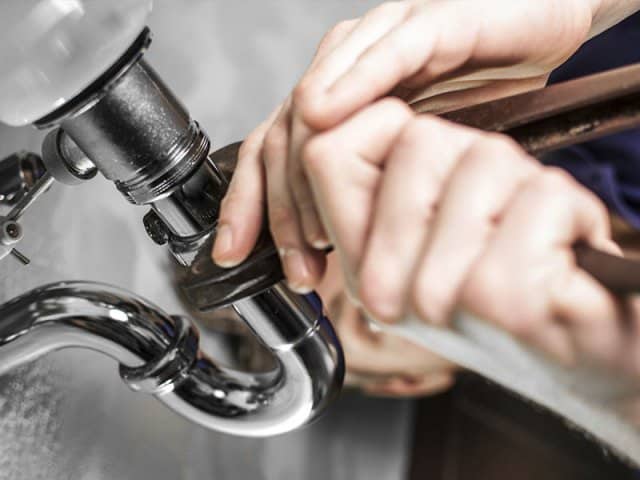In an era when environmental concerns are at the forefront of global discussions, it’s essential to consider how our daily choices impact the planet. One often-overlooked area where we can make a significant difference is plumbing. Eco-friendly plumbing solutions not only reduce our carbon footprint but also save us money in the long run. In this blog post, we will explore sustainable plumbing options that can help you create a greener, more environmentally responsible home.
1. Low-Flow Fixtures
Traditional plumbing fixtures, such as faucets, showerheads, and toilets, can be significant water wasters. Low-flow fixtures are designed to reduce water consumption without compromising performance. By installing these fixtures, you can save both water and money on your utility bills.
Benefits of Low-Flow Fixtures:
- Water Savings: Low-flow fixtures can reduce water usage by up to 60% compared to traditional fixtures.
- Energy Savings: Using less hot water also reduces energy consumption, lowering your water heating bills.
- Reduced Strain on Resources: Conserving water helps preserve this precious resource for future generations.
- Environmental Impact: Lower water consumption reduces the energy required for water treatment and transportation.
2. Tankless Water Heaters
Traditional water heaters with storage tanks keep a large amount of water hot 24/7, leading to standby energy losses. Tankless water heaters, also known as on-demand water heaters, heat water only when needed. This results in energy savings and a continuous supply of hot water.
Benefits of Tankless Water Heaters:
- Energy Efficiency: Tankless water heaters can be up to 34% more energy-efficient than conventional tank-type heaters.
- Space Savings: Tankless units are compact and can be installed in smaller spaces, freeing up storage space in your home.
- Longevity: Tankless units typically have a longer lifespan than traditional water heaters, reducing waste from replacements.
- Reduced Energy Bills: Lower energy consumption translates to cost savings over time.

3. Rainwater Harvesting Systems
Rainwater harvesting is a sustainable practice that involves collecting and storing rainwater for various non-potable uses in your home, such as irrigation, toilet flushing, and outdoor cleaning. It reduces the demand for municipal water supplies and can help conserve water resources.
Benefits of Rainwater Harvesting:
- Reduced Water Bills: Using harvested rainwater for non-potable purposes can lead to substantial savings on your water bills.
- Conservation: By reducing reliance on treated municipal water for irrigation, you contribute to water conservation efforts.
- Self-Sufficiency: Rainwater harvesting makes your home less dependent on external water sources during droughts or water restrictions.
- Improved Landscape Health: Rainwater is naturally soft and free of chlorine and other chemicals, promoting healthier plant growth.
4. Greywater Recycling
Greywater is wastewater generated from non-toilet plumbing fixtures like sinks, showers, and washing machines. Instead of sending it straight to the sewer or septic system, you can recycle greywater for purposes like landscape irrigation or toilet flushing. Greywater recycling systems are becoming increasingly popular as they reduce the demand for freshwater resources.
Benefits of Greywater Recycling:
- Water Savings: Greywater recycling can reduce indoor water use by up to 50%, saving both water and money.
- Reduced Strain on Sewage Systems: Diverting greywater from sewage systems reduces the risk of overflows and pollution.
- Environmental Impact: Lower water consumption reduces the energy and resources required for water treatment.
- Resilience: Greywater recycling systems make homes more resilient during water shortages or restrictions.
5. Leak Detection Systems
Undetected water leaks can lead to substantial water waste and costly damage to your home. Leak detection systems, both simple and advanced, can help you identify and address leaks promptly.
Benefits of Leak Detection Systems:
- Water Savings: Early leak detection prevents water from being wasted.
- Cost Savings: Prompt repairs can save you money on water bills and prevent expensive damage to your home.
- Environmental Impact: Reducing water waste lowers the energy required for water treatment and distribution.
- Peace of Mind: Advanced leak detection systems can send alerts to your smartphone, allowing you to address issues even when you’re away from home.
6. Solar Water Heating
Solar water heating systems use energy from the sun to preheat water before it enters your traditional water heater. This reduces the energy required to heat water and lowers your energy bills.
Benefits of Solar Water Heating:
- Renewable Energy: Solar energy is a clean, renewable source of energy, reducing your reliance on fossil fuels.
- Energy Savings: Solar water heating can cut water heating costs by up to 80%, depending on your climate and system size.
- Reduced Emissions: Lower energy consumption means fewer greenhouse gas emissions.
7. Eco-Friendly Pipe Materials
The materials used in your plumbing system can also impact its sustainability. Consider using eco-friendly pipe materials such as PEX (cross-linked polyethylene) or recycled-content pipes.
Benefits of Eco-Friendly Pipe Materials:
- Reduced Environmental Impact: Recycled-content pipes use fewer virgin resources and reduce waste.
- Energy Efficiency: PEX pipes are known for their energy-efficient properties, reducing heat loss from hot water pipes.
8. Regular Maintenance and Inspections
Finally, one of the most eco-friendly practices is regular plumbing maintenance and inspections. Addressing leaks, replacing worn-out fixtures, and ensuring your plumbing system is in good working order can prevent water waste and the associated environmental impact.
Benefits of Regular Plumbing Maintenance:
- Water Savings: Fixing leaks and maintaining efficient fixtures prevents water waste.
- Cost Savings: Early detection and repairs can save you money on water bills and major plumbing repairs.
- Environmental Stewardship: Responsible water use and conservation contribute to a healthier planet.
In conclusion, eco-friendly 24 hour plumber solutions not only benefit the environment but also offer practical advantages such as cost savings and improved efficiency. By implementing these sustainable practices and technologies in your home, you can reduce your environmental footprint and create a greener, more eco-conscious living space.
